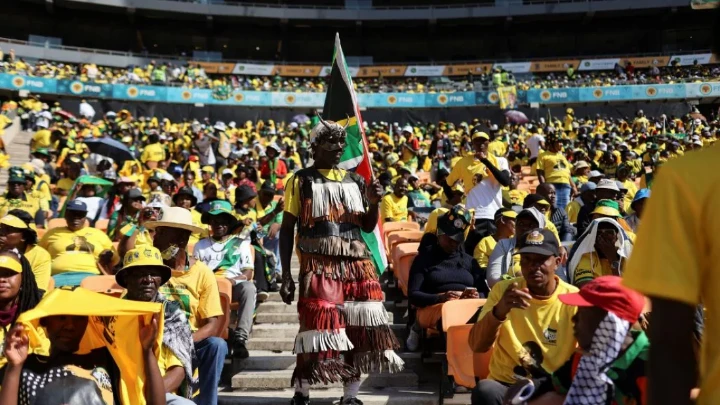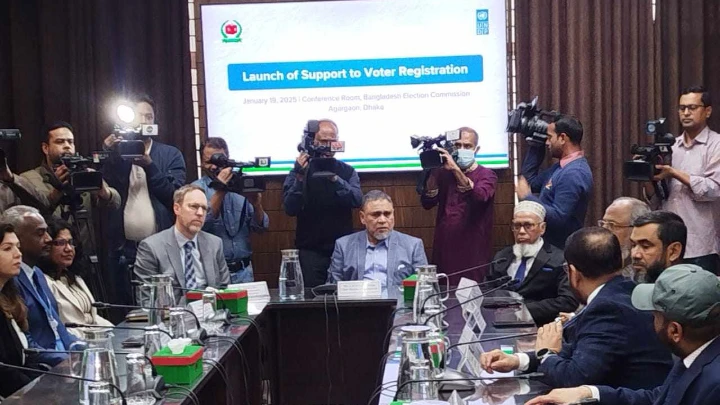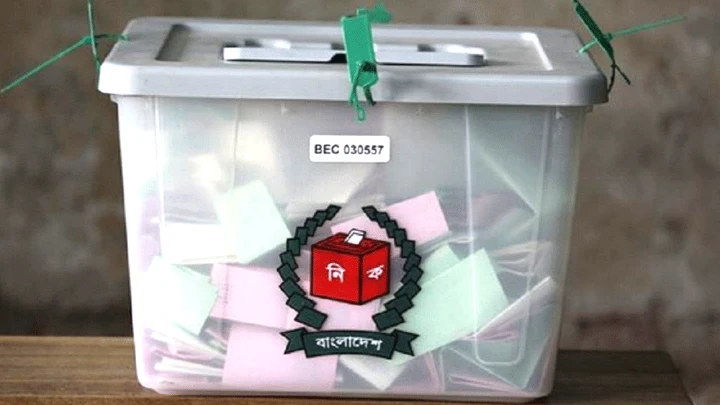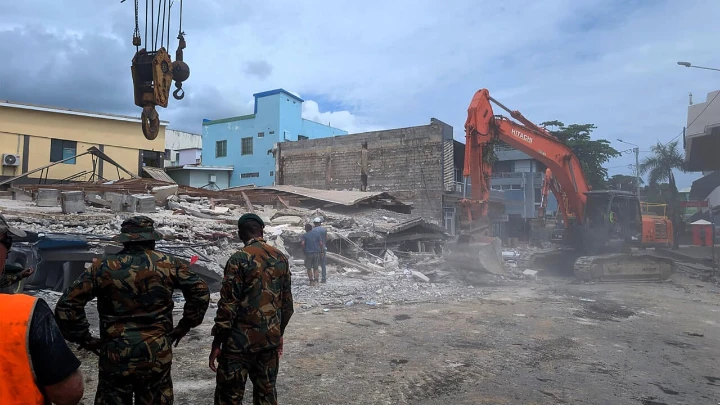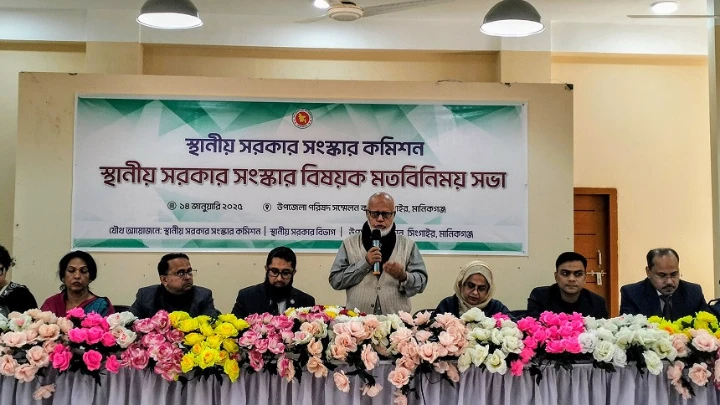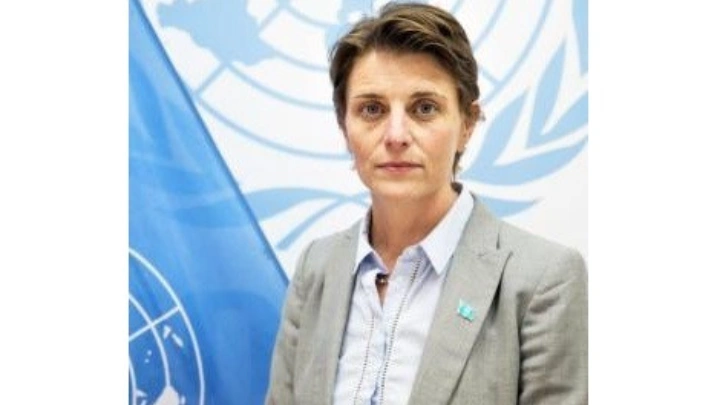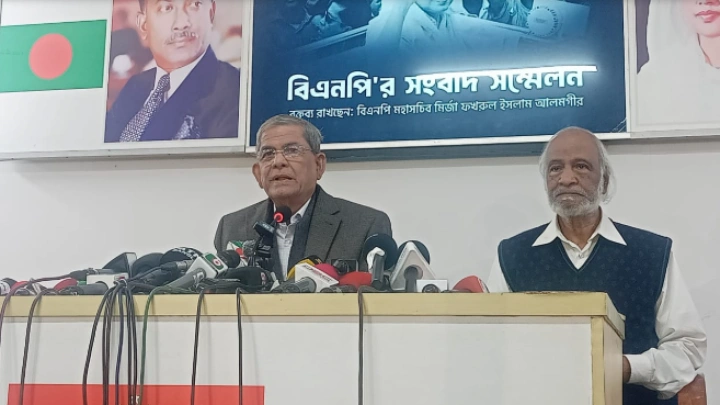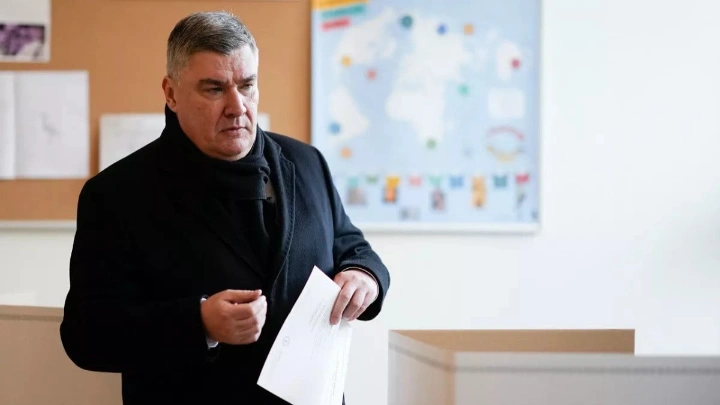Will South Africa's 2024 election save its democracy?
DW || Shining BD
South Africa has enjoyed 30 years of democracy after apartheid, and, for the first time, the stakes are significantly high in the general election scheduled for May 29.
Several polls suggest that the African National Congress (ANC) party of President Cyril Ramaphosa could lose its majority after three decades in power.
However, Steven Gruzd, head of the African Governance and Diplomacy Programme at the South African Institute of International Affairs, believes the ANC can still secure a slim majority.
"My personal feeling is that somehow the ANC is going to get just over 50%, even though it is deeply unpopular," Gruzd told DW.
According to Gruzd, the electorate could punish the ANC due to its poor performance in power over the years.
Democracy at stake
But for Tessa Dooms, a South African political and social analyst, it's not just the ANC's future that is at stake in the election but the entire democratic experiment in the country.
"The stakes for the elections in South Africa this year are high, but they are high in the sense that very many people are disillusioned with democracy at this point," she said.
According to Dooms, with elections not delivering the change people want, many have now lost hope in the role of democracy in the development of a society.
"People are exiting from elections as a democratic institution and other democratic institutions are being abandoned by the general populace," Dooms said, adding that there is a general feeling that democracy is not functioning and delivering as it should.
Voters are disappointed
For Dooms, with voters feeling high levels of disappointment, many will be hoping to see if they can regain their trust in the election system on May 29.
"Can the electorate regain its trust, that democratic processes can actually produce change and results, and outcomes that are not in favor of a few?" she said.
At the core of the dysfunctional democracy is the impact on the living conditions of ordinary citizens. South Africa is the continent's leading economy, but millions of citizens still face deep socioeconomic problems.
In his state of the nation address in February, Ramaphosa said poverty in the country fell from 71% in 1993 to 55% in 2020.
World Bank figures point to a flatlined poverty rate of around 62-63% since 2008.
Youth seeking improved living conditions
Gruzd said the state of the economy will be at the top of voters' minds as they seek improvement in their livelihoods.
"Big issues in the country (are) energy, corruption, lack of jobs, inequalities, (and) post service delivery," he said.
Dooms agreed, adding that most of these issues are more likely to affect young people, with many of them looking for a shift in their living conditions.
"Whether it is water, or electricity or housing, there hasn't been a plan for service delivery. There have been issues around corruption," she said.
The unemployment rate was 32.4% in 2023, and young people account for more than half of that.
"Getting more people active, growing an exclusive economy, not only a larger economy in terms of GDP, would be crucial in the election and even after," said Dooms.
"In this election, young people are a major voting bloc; 42% of registered voters are below the age of 40, that's 11 million votes," she added.
But for Dooms, many young people who could potentially decide the election outcome are undecided. She blames a lack of voter education and the indifferent stance of some young voters, as they seek solutions to their daily needs.
"Young people feel that politics is still the old person's game, even though young people are in the majority," she said.
South Africa's case against Israel could play major role
According to Gruzd, South Africa's legal campaign against Israel in the ongoing conflict in Gaza could also play a major role in the election.
In December 2023, South Africa filed a case against Israel, accusing it of violating its obligations under the Genocide Convention.
The application sought provisional measures to safeguard Palestinian rights under the convention and ensure Israel's compliance.
Egypt has also announced its backing for the case and plans to file a declaration of intervention in South Africa's case against Israel at the International Court of Justice.
"South Africa's strong stance on the International Court of Justice and the genocide case that it has brought against Israel, some have said is a desperate attempt to try and win the Muslim vote, which is quite crucial in the Western Cape," said Gruzd.
Jacob Zuma factor 'rattles the ANC'
The ANC's chances of winning big at the poll have also been worsened by the decision of former President Jacob Zuma to leave the party to launch a new political group.
"It is a major factor in how this election would go," Dooms pointed out, stressing that "this (Zuma's candidacy) rattles the ANC."
Gruzd, however, doesn't think the Zuma factor would deny the ANC from winning the election, though it may need a coalition with another party to form a government.
"It (ANC) remains very popular in the rural areas. Sometimes we judge things from the city," he said. "My feeling is that the ANC has gradually been declining and it is continuing that decline, it is not going to relinquish power easily."
Coalition talks could be tough
Gruzd also anticipates tough coalition negotiations, should the ANC not be able to form a government independently.
"If the polls are right and I am wrong, it (ANC) almost certainly needs to find coalition partners," he said, adding that many would dread a coalition with the Economic Freedom Fighters - a party led by outspoken politician Julius Malema.
"For many people, the doomsday scenario is an ANC-EFF (coalition) government that would push the ANC even further to the left and make it more radical. I think markets would react very badly to that," said Gruzd.
He also doubts there could be an effective coalition between the ANC and the opposition Democratic Alliance.
Dooms said that, whatever the outcome of the election, South Africans are looking forward to a change that delivers the promise of economic development and safety, and addresses the country's vast inequalities.
"Getting people included in the economy is going to be important. Crime and safety, and people thinking they can be taken care of in society and not experience harm, would be key for voters," she said.
Shining BD

